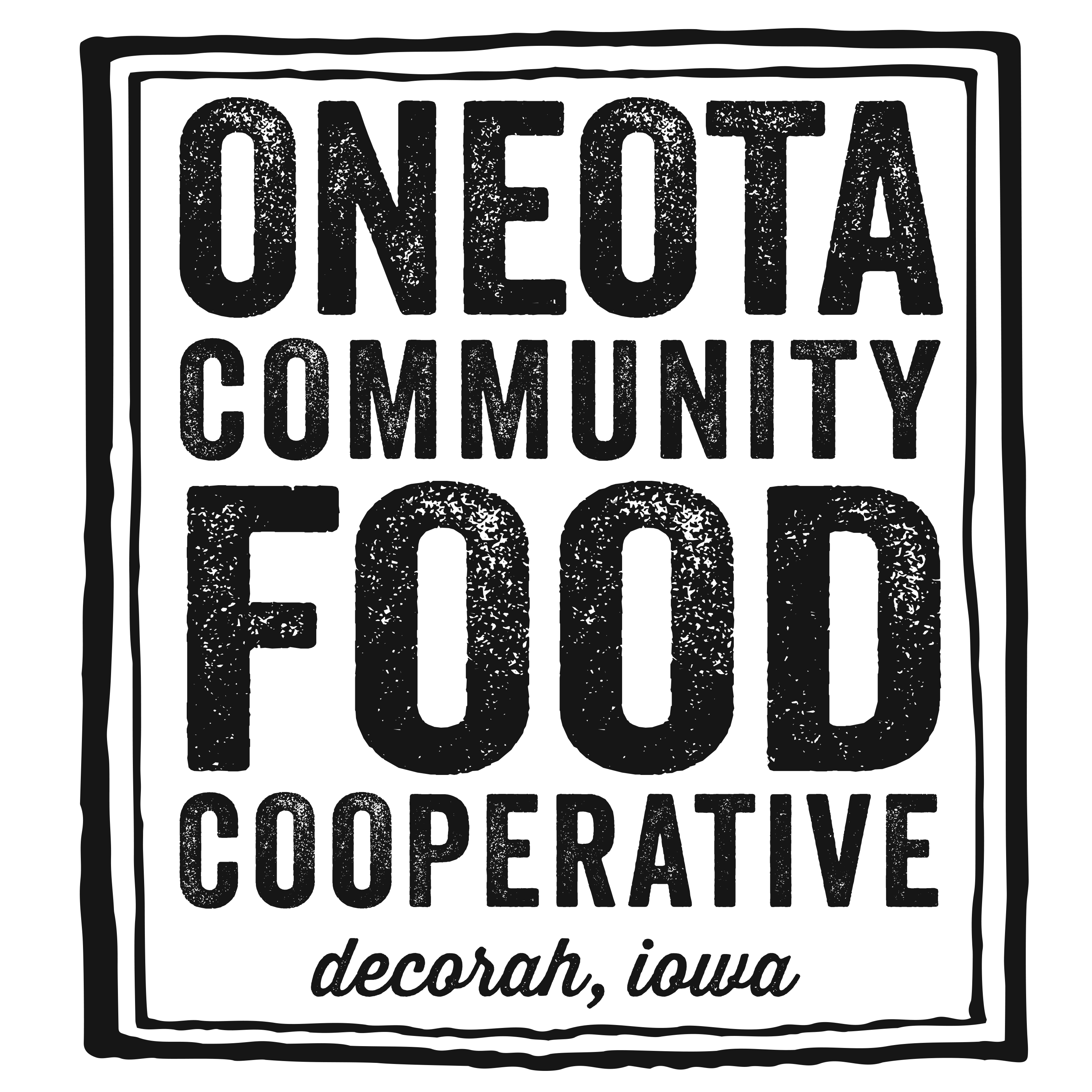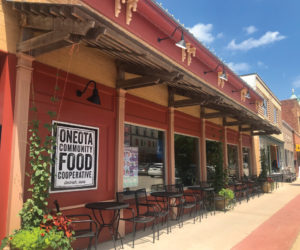 By: David Lester, General Manager
By: David Lester, General Manager
Have you ever sent a text to a friend or loved one and after two minutes they still haven’t texted you back? You begin to run different scenarios through your head like “they must think I’m a fun-ruiner” or “I bet they’re with all of my other friends having the time of their lives and discussing my new haircut.” Suddenly, you begin questioning your existence as a human being and why you even sent the message in the first place. Next, you find yourself looking at places for sale in faraway countries, your hands become sweaty, you start drinking your third cup of coffee at 8pm and pacing around the room like a caged animal. Then the comforting, high-pitched single “ding” comes in. All is okay and your friend lets you know they were in the shower and that they still want to hang out with you this evening. Whew!
This is kind of similar to what is going on in the small, independent grocery world and in the world of small businesses. Restaurant sales continue to outpace grocery sales. This had never been the case before 2015. Whole Foods, the investor-owned natural food grocery store chain that learned its business from cooperatives, is not doing well and has seen profits decline. It has brought its store expansions to a halt due to intense competition. Dubuque Food Co-op, East Lansing Food Co-op, and several other food co-ops across the country have closed, or are considering closing their doors after forty-plus years of serving their communities. The answers for why this is happening are many. Poor management, bad GM/Board relationships, extreme competition and the one that I think is most to blame – the inability to respond to market conditions in a timely manner.
We have seen this lack of quick response in our own small town with the closing of one of our downtown retail anchors, JC Penney. After ninety-five years this retailer has closed its doors despite being a successful and profitable store for the chain retailer. The corporate office hasn’t given a lot of specific details as to why they are closing the Decorah location, but one big reason is that “some of its stores are being closed to allow JC Penney to more effectively compete against online retailers by providing more personalized beauty offerings, affordable private brands, and home goods and services.” Basically, JC Penney didn’t realize the impact that online retailers like Amazon and others were having on their business until it was too late and our beloved store became one of the victims to help get the mothership back on track.
Food co-ops are also not immune to shifts in consumer trends like online sales. Because of the structure of our business, a co-op can be susceptible to slow change as well. We are a democratically controlled business and I am thankful for this structure of our business, but reaction time to implement needed changes can sometimes bog down the process of implementation. Luckily, at the Oneota Community Co-op, we have an energetic, engaged board of directors, passionate member/owners of all ages and a staff that is friendly and knowledgeable. For the most part, we seem aligned and focused on selling the freshest local and organic products as possible. It will be my job and the staff’s job to figure out how to get these products in more of our customers’ pantries at home. With more customers ordering boxed ingredients online, we will need to find an option for our customers that is affordable and contains better quality ingredients. More customers in co-op markets are demanding groceries to be delivered to their doorstep. How will we address that opportunity? Thanks to our two breweries in town, Toppling Goliath and Pulpit Rock Brewery, Decorah is quickly becoming a national beer tourism destination. How can our store enhance our customer service to welcome more visitors to our town? These are difficult questions, but also really fun ones to think about and offer solutions. Technology upgrades in the Co-op will definitely be a part of the answer to all of these questions.
We have to be careful of the technology we embrace and use at our Co-op, but we need to use certain technologies to make us more relevant in what we do best – sell the best local and organic products possible at reasonable prices. What we’re selling really hasn’t changed that much in the last four decades, but how we are selling it has changed dramatically. Because more people are going out to eat, we need to pay attention to that. The average shopper is spending fewer and fewer minutes in the store to shop and if they are actually cooking a meal at home, they want it to be easy and simple.
I still believe that Decorah is a little different and a little more unique than the rest of the fast-paced world of wireless. I hear customers from out of town all the time asking me why their cellphone doesn’t work. I ask them if they have AT&T or another related carrier, and I give them the grim news that there is no coverage here for them. It’s kind of comforting to feel like our bluffs and valleys are still protecting us to some degree from cellphone towers. I usually say something like “Well, enjoy your unplugged weekend!” and most seem somewhat relieved and others get this look like they want to drive back to the city immediately. I think we are going to see more people (tourists) flocking to communities like Decorah to get away, slow down, eat slow food, take a woodcarving class and get their hands dirty.
Our Co-op has hired the services of market study firm to help give us information about our market, potential customers, and potential market share of the grocery pie. This information will be given to a few consultants that we’ve hired to help us with the next phase of our business. The end result could range from a simple store refresh and remodel to a full-blown expansion into the building we purchased in 2015. We will be responsible in the financial planning of this project and mindful of our member/owners’ resources, but time is of the essence to continue to have a store that can compete against larger competitors and continue to be profitable. Our member/owners play a key role in giving us feedback and direction in this next phase of the Co-op. Over the next year and a half, you will most likely see several opportunities to meet with board members and staff to tell us about your ideas and concerns.
Keeping our mission in focus and listening to our member/owners on what they would like to see will be two key pieces in making this next phase for us a successful one. We need not react immediately and irresponsibly to every trend but carefully think about proper uses of technology to keep us relevant. All is okay at the Co-op and we look forward to seeing you soon!



